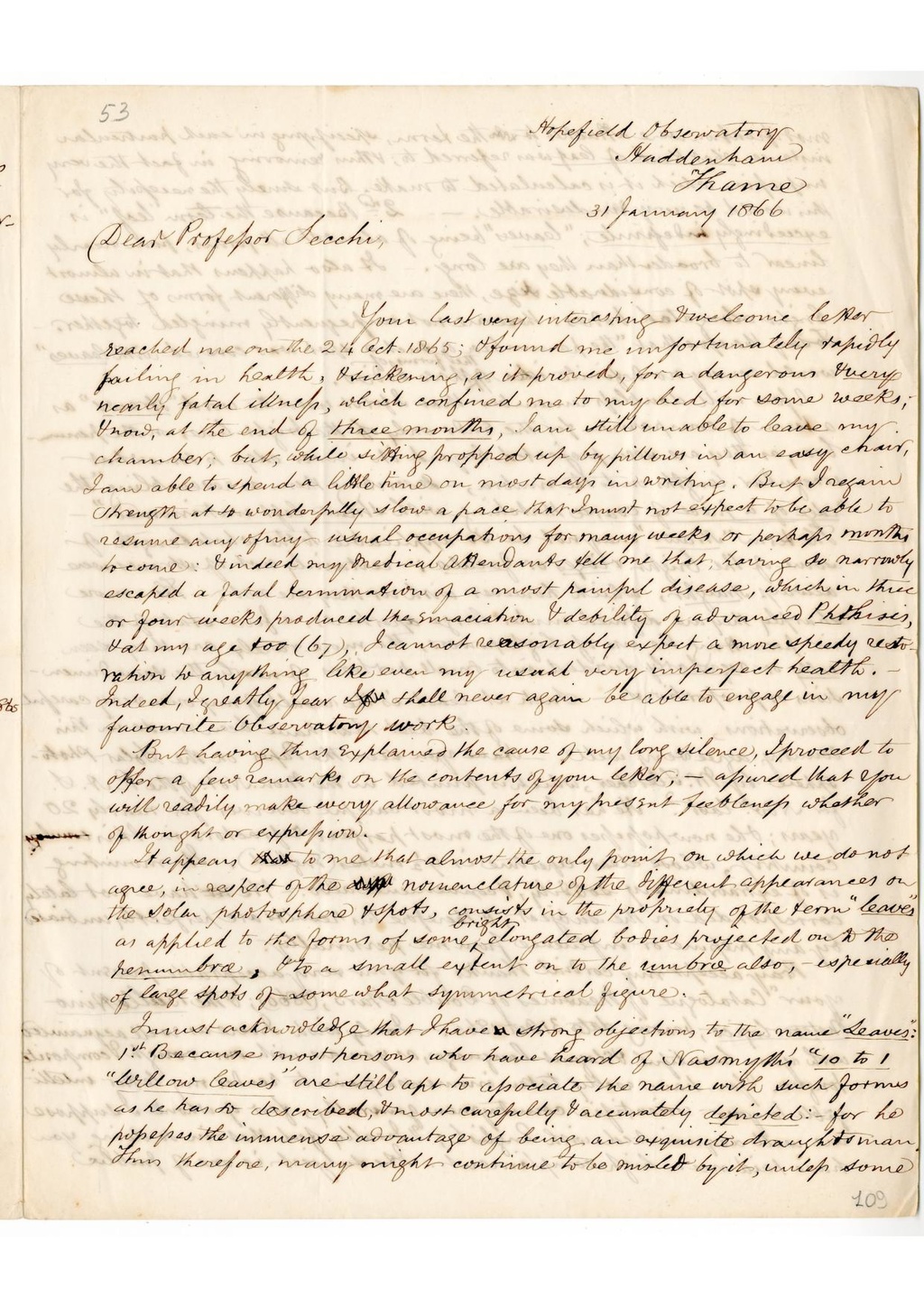Hopefield Observatory
Haddenham
Thame
31 January 1866
Dear Professor Secchi,
Your last very interesting and welcome letter reached me on the 24 Oct. 1865; and found me unfortunately rapidly failing in health, and sickening, as it proved, for a dangerous and very nearly fatal illness, which confined me to my bed for some weeks; and now, at the end of three months, I am still unable to leave my chamber; but, while sitting propped up by pillows in an easy chair, I am able to spend a little time on most days in writing. But I regain strength at so wonderfully slow a pace that I must not expect to be able to resume any of my usual occupations for many weeks or perhaps months to come: and indeed my medical attendants tell me that, having so narrowly escaped a fatal termination of a most painful disease, which in three or four weeks produced the emaciation and debility of advanced Phihisis, and at my age too (67), I cannot reasonably expect a more speedy restoration to anything like even my usual very imperfect health. - Indeed, I greatly fear I shall never again be able to engage in my favourite observatory work.
But having thus explained the cause of my long silence, I proceed to offer a few remarks on the contents of your letter, - assured that you will readily make every allowance for my present feebleness whether of thought or expression.
It appears to me that almost the only point on which we do not agree, in respect of the nomenclature of the different appearances on the solar photosphere and spots, consists in the propriety of the term "leaves" as applied to the forms of some bright elongated bodies projected on to the penumbra, and to a small extent on to the umbra also, - especially of large spots of somewhat symmetrical figure.
I must acknowledge that I have strong objections to the name "leaves": 1st. Because most persons who have heard of Nasmyth's "10 to 1 willow leaves" are still apt to associate the name with such forms as he has so described, and most carefully and accurately depicted: - for he possesses the immense advantage of being an exquisite draughtsman. Thus [id est This] therefore, many might continue to be misled by it, unless some
